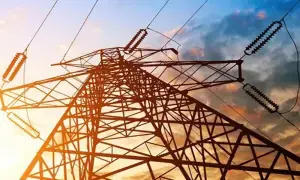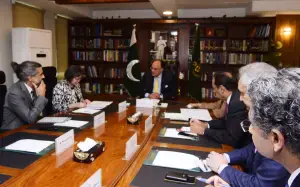NEPRA approves Rs3.99 per unit increase in electricity tariff
4 min readISLAMABAD: The National Electric Power Regulatory Authority on Tuesday approved Rs3.99 per unit increase in the electricity tariff under the fuel adjustment charges (a system designed to adjust monthly electricity fees based on fluctuations in fuel prices) for April.
“According to the initial data check, Rs3 99 paisa becomes the electricity tariff under the fuel adjustment charges for April,” Nepra said while presiding over a public hearing on the Central Power Purchasing Agency’s request for an Rs4.5 per unit increase in the power tariff.
The decision comes after the government announcement on May 26 to increase the price of petrol by Rs30 per litre in order to meet the bailout conditions of the International Monetary Funds, as the country seeks a year extension in the loan programme and wanted to expand it by $2 billion. “IMF will give $3 billion. I expect the IMF to agree to increase it to $5 billion. And, if it’s not $5 billion we will have $4 billion,” he said while addressing a press conference on May 28.
The decision will be made later in which month it will be adjusted. The public hearing was presided over by Nepra Chairman Touseef H Farooqi. Authority members Rafiq Ahmed Sheikh and Maqsood Anwer Khan were also present.
Tuesday’s decision would not be applicable to the K-Electric consumers. Nepra had earlier approved an increase of Rs4.83 per unit in K-Electric’s power tariff on account of the fuel cost adjustment for March 2022 against the KE demand for Rs5.27 per unit increase.
CCPA application
“Last month, 12.55 billion per unit of electricity was produced. The approximate cost of power production was Rs133 billion. Rs27 per unit of electricity was produced through diesel and Rs28 per unit of electricity through furnace oil, Rs16 per unit of electricity through LNG, and Rs14 per unit via coal. And, power losses of Rs31 per unit were incurred,” said the CCPA application.
An approval to Rs4.5 per unit increase in electricity tariff would have imposed an additional burden of approximately Rs59.45 billion on the power consumers.
Public hearing
Nepra officials said that gas produced 10.78 per cent less electricity in April, adding that the shortfall was overcome by using furnace oil. The price of furnace oil and coal in the international market has increased.
Engro Power has not yet been restored after a power plant belt broke, they said.
Nepra Sindh member Rafiq Sheikh said that 33 gas power plants top the merit order and wondered about such statistics in view of the gas shortage for more than two years.
Nepra called for improving the merit order list.
Earlier, Rs8.26 paisa per unit was charged from the consumer under the FAC for March for a month. April’s FCA will be charged Rs1.13 more in June than in March, the authority said, adding that the implementation of such a decision would be applicable for one month. The decision would apply to all consumers of DISCOs except lifeline consumers.
Nepra would issue its detailed decision after further examining the initial data. Consumers would face an additional burden of over Rs51 billion for one month.
What is fuel adjustment charge?
Fuel adjustment charge is a system designed to adjust monthly electricity fees based on fluctuations in fuel prices, which changes with the rate of the global oil market. Power companies in Pakistan are supplied imported fuel by the government and the Nepra sets electricity tariff.**
Higher the oil price, the more fuel cost adjustment charge will be imposed and the lower the fuel price, the lower it will be. In the previous PML-N government, the fuel adjustment charge (FCA) was negative at times due to a fall in oil prices.
Since oil prices are volatile, power firms are told to charge a specific amount for power generation at the beginning of the month. Towards the end of the month, the companies begin preparing petitions to recover the difference borne on account of change in oil prices. The difference is fuel price adjustment which is recovered from consumers in the later months. Ultimately, the consumer is the sole payer for the electricity and its charges.
For the latest news, follow us on Twitter @Aaj_Urdu. We are also on Facebook, Instagram and YouTube.


























Comments are closed on this story.